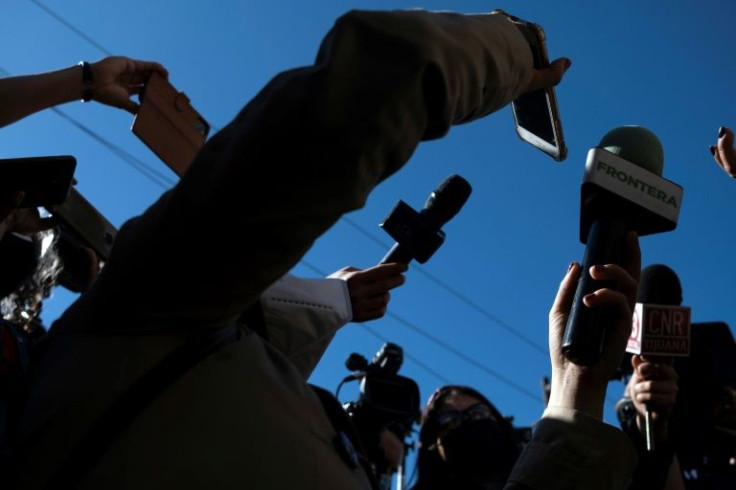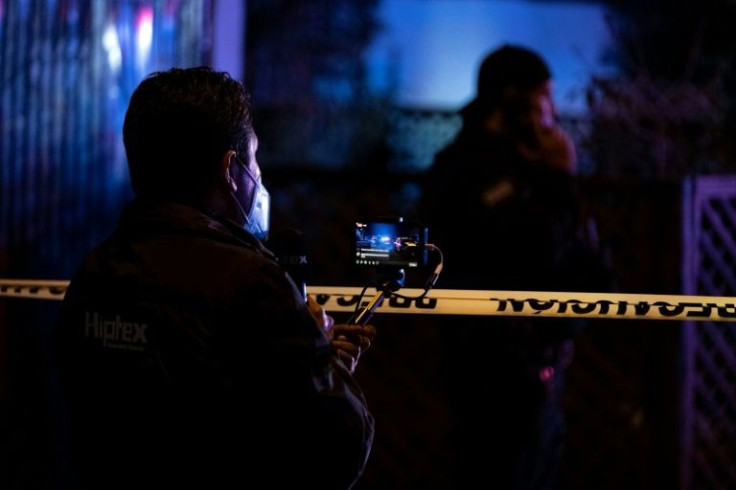Mexico Urged To Do More To Protect Journalists After Murders
The murders of two journalists in the Mexican border city of Tijuana in less than a week have triggered calls for the government to step up protection of media workers.
The killings of photographer Margarito Martinez and reporter Lourdes Maldonado have sparked outcry among colleagues in what is one of the world's most dangerous countries for journalists.
Reporters organized protests on Tuesday in cities across the country, while UN Secretary-General Antonio Guterres urged Mexico to take tougher action.
"We call on Mexican authorities to strengthen the protection of journalists, in particular, to take further steps to prevent attacks on them, including by tackling threats and slurs aimed at them," said Guterres's spokesman Stephane Dujarric.
Martinez, who was shot dead on January 17, and Maldonado, who was gunned down on Sunday, had both requested protection from a security mechanism for journalists in the northwestern state of Baja California.
"The mechanism has failed again when journalists feel most vulnerable," Sonia de Anda, a reporter in Tijuana, told AFP.
Martinez had been threatened by a blogger allegedly linked to criminals, but was still waiting for protection, De Anda said.
Maldonado had been given a police guard for a year when leaving and arriving at her home.

But "obviously there were no police" present on Sunday when she was shot outside her house, said De Anda, a member of the media rights group Yo si soy periodista (I am a journalist).
In 2012, Mexico introduced a Protection Mechanism for Human Rights Defenders and Journalists.
It now "protects" 496 journalists, according to the government's website.
Jorge Carrasco, director of the weekly news magazine Proceso, turned to the mechanism in 2013 after receiving death threats for his work.
He was assigned a body guard and cameras were installed in his house.
"In my case it worked. But the mechanism was overwhelmed. There were so many cases," he said, alleging insufficient commitment from other state institutions and a lack of coordination with regional authorities.
That was a factor in the murders in Tijuana, journalists said.

"Due to a change of governor (in Baja California), the mechanism stopped operating" and was supposed to be re-instated on Monday, said De Anda.
"In the meantime, two of us were killed," she said.
Balbina Flores, the Mexico representative of media watchdog Reporters Without Borders, said that Martinez had been forced to seek help from the federal government, but his request was bogged down in paperwork.
"The mechanism should provide immediate protection, leaving paperwork for later," she said.
Even federal protection is not always enough.
"At least four journalists with assigned guards have been killed in three years," Flores said.
AFP sought a comment from the authorities responsible for the national protection mechanism, but there was no immediate response.
Maldonado had worked for several outlets, including Primer Sistema de Noticias (PSN), which is owned by Jaime Bonilla, who was governor of Baja California from 2019 to 2021.
She won a lawsuit a few days ago against PSN, which she had been suing for years over unfair dismissal.
In 2019, Maldonado had asked Mexican President Andres Manuel Lopez Obrador for "support, help and justice," as she feared for her life.
"I have been on trial for six years with him," she added about the governor, during one of Obrador's press conferences.
Bonilla denied being involved in the murder.
In addition to the killings in Tijuana, journalist and social media activist Jose Luis Gamboa died after he was stabbed and left lying in the street in the eastern state of Veracruz earlier this month.
At least seven journalists were murdered in Mexico in 2021, according to an AFP count, although it has not been determined if all the killings were linked to their reporting.
More than 100 journalists have been murdered since 2000 in Mexico and only a fraction of the crimes have resulted in convictions.
© Copyright AFP {{Year}}. All rights reserved.





















